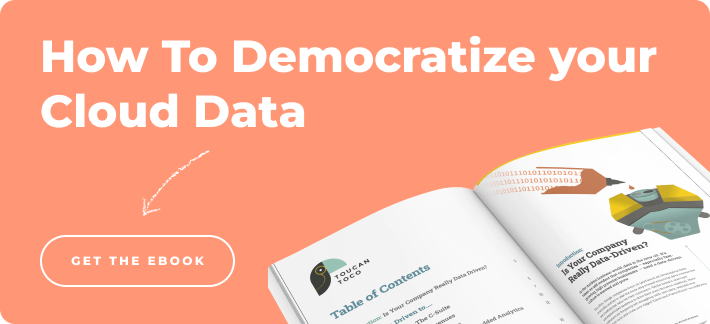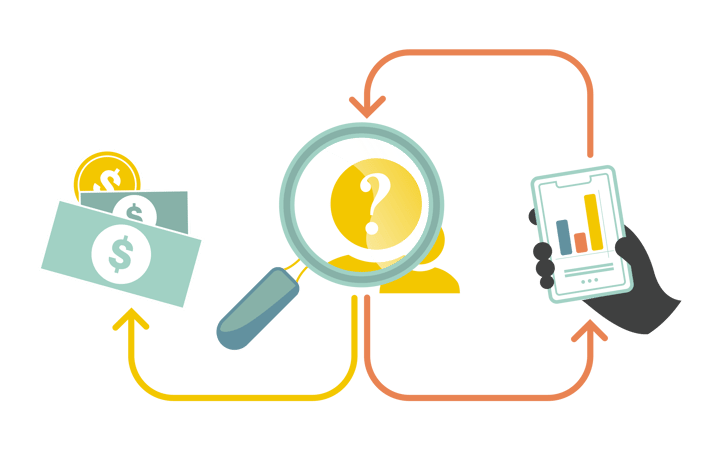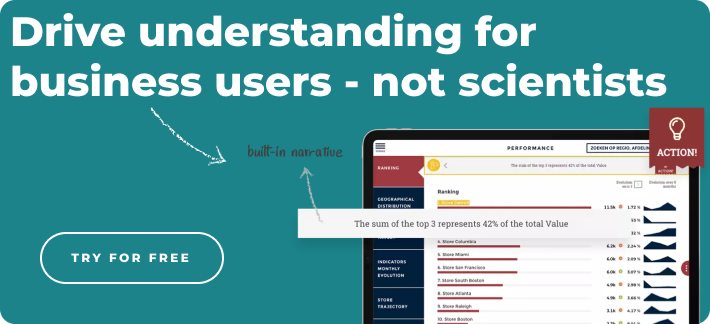Cloud Business Intelligence - What does it mean?
Cloud business intelligence, or cloud BI, refers to the process of transforming data into actionable insights, whether partially or completely within a cloud environment. With cloud BI, organizations can make data-driven decisions without having to purchase or maintain physical hardware. All SaaS-form business intelligence is cloud BI.
While cloud-based business intelligence is applicable to any industry, some industries have taken advantage of it more quickly than others, such as entertainment, healthcare, and finance. In a broad range of industries, cloud BI has proven effective at democratizing data, saving money, scalability, and providing real-time insights.
Why is could BI important?
A majority of organizations use at least one cloud-based application today - think CRM software, online collaboration tools, cloud storage, and even help desk software. In line with that, a cloud solution for business intelligence makes perfect sense for organizations.
Turning data into actionable insights is at the core of business intelligence. It's about delivering the right insights at the right time to the right stakeholders. A cloud-based solution is ideal for this process. Data can be processed, stored, delivered, and accessed in a fast and scalable manner.

Benefits of cloud BI
Understanding the limitations of desktop BI tools helps put the benefits of cloud BI into perspective. The problem with desktop BI is that IT is unable to oversee and control data items that are being pulled from the cloud or server to other devices, resulting in gaps in certifications and a difficult trackability of the version of the data.
In addition, it is challenging to integrate disparate data sources into a configured environment. As a result, business users are constantly in need of specific data in order to meet their needs, while IT is not able to resolve ticket submissions quickly enough. Consequently, a backlog prevents business decisions from being made in a timely manner.
In addition to solving these problems, cloud BI offers a number of benefits as well.
Easy to deploy
The internet-based nature of cloud BI solutions makes them quick to install and simple for teams to use.
Intuitive design
Any stakeholder can make smart decisions by navigating data insights and using dashboards that are easy to use in cloud BI tools.
Automatic updates
Software updates and new features are automatically implemented in cloud BI solutions. Users have immediate access to the latest and greatest options without having to update physical hardware.
Mobile access
Remote access has become increasingly important with the rise of remote work. Stakeholders no longer need to rely on desktop computers and on-site access with cloud BI. They instead provide BI solutions that can be accessed from anywhere on any device, like Toucan. Dashboards that are tailored to your needs are always at your fingertips.
Cost savings
Cloud BI reduces overhead costs by reducing the need for on-site servers and IT staff.

Scalable resources
With Cloud BI, an organization can scale up and down as needed. Large volumes of data can be handled easily, and new users can be added easily. Additionally, it is a more powerful method of computation.
Stay competitive
Many small- and medium-sized businesses could not afford traditional on-premise BI. Because cloud BI is affordable, companies of any size can benefit from better business intelligence.
Share securely
Through the use of cloud services, organizations can ensure proper data governance and securely share insights with members of their teams.
More accurate data
Data can be processed rapidly by cloud BI tools, and data can be rechecked at any time. Their precision exceeds that of traditional BI tools and manual data integration methods.
What the future of cloud BI looks like?
There will be an increase in cloud-based business intelligence. Its obvious benefits, coupled with integration with other cloud applications, will make it the default for modern businesses.
Rather than opening a companywide dashboard, stakeholders will be able to access a customized app created specifically for their department from anywhere in the world on any device. It will be possible to streamline and automate workflows using this approach.
With the growing complexity of an organization's architecture, cloud-based business intelligence solutions will provide even greater flexibility and essential capabilities.


